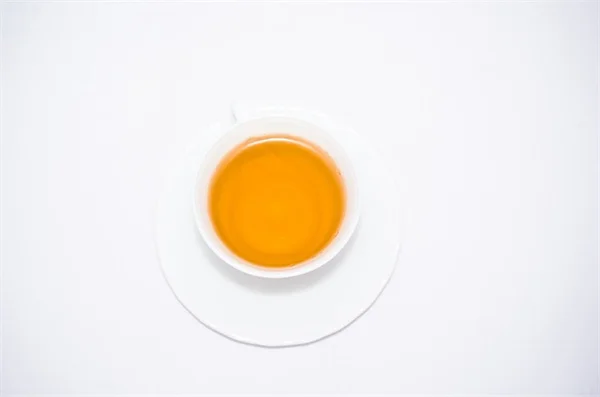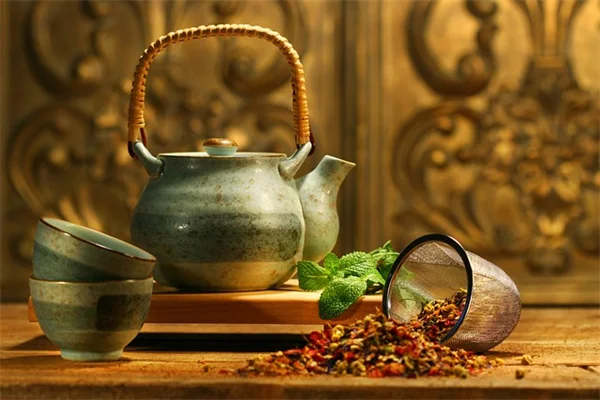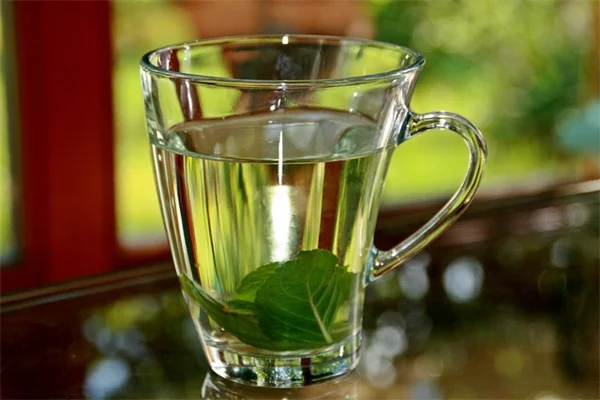How to Clean Bamboo Floors: 7 Essential Tips for Stunning Shine
Are you wondering how to clean bamboo floors? The answer is simpler than you might think! Proper cleaning is essential to maintain the beauty and longevity of your bamboo flooring. Just like any other flooring type, bamboo floors require a bit of TLC to keep them looking their best. In this guide, I’ll walk you through the best practices and tips for cleaning bamboo floors effectively. You'll learn about the right tools to use, how often to clean, and common mistakes to avoid. So, let’s dive in and discover how to keep your bamboo floors shining bright while ensuring they last for years to come! 🌟
E.g. :How to Clean Shower Floor: 7 Game-Changing Tips for a Sparkling Finish!
- 1、Bamboo Flooring 101: The Eco-Friendly Floor Revolution 🌱
- 2、The Ultimate Bamboo Floor Cleaning Toolkit 🧰
- 3、Step-by-Step: How to Clean Bamboo Floors Like a Pro ✨
- 4、Oops! Common Bamboo Floor Cleaning Mistakes ❌
- 5、Keeping Your Bamboo Floors Looking Brand New 🆕
- 6、Bamboo Floor Care Through the Seasons 🌞❄️
- 7、Professional Secrets for Bamboo Floor Longevity 🔍
- 8、FAQs
Bamboo Flooring 101: The Eco-Friendly Floor Revolution 🌱
What Makes Bamboo Floors So Special?
Ever walked into a room and immediately noticed those gorgeous golden floors? Chances are you were admiring bamboo flooring! Unlike traditional hardwoods that take decades to grow, bamboo reaches maturity in just 5-7 years, making it one of the most sustainable flooring options available today. We're talking about a grass (yes, grass!) that's harder than maple when properly processed.
Here's a fun fact: bamboo actually absorbs more carbon dioxide than equivalent stands of trees. So when you choose bamboo, you're not just getting beautiful floors - you're helping the planet too! The manufacturing process creates planks that look remarkably like hardwood, available in natural, carbonized (darker), or even strand-woven (super dense) varieties.
Why Your Cleaning Routine Matters
Think of your bamboo floors like that favorite leather jacket - the better you care for it, the longer it lasts and the better it looks. Dirt is public enemy #1 because those tiny abrasive particles act like sandpaper every time someone walks across your floor. Over time, this creates microscopic scratches that dull the finish.
But here's the good news: proper cleaning can actually extend your floor's lifespan by years! Regular maintenance prevents buildup that requires harsh cleaning methods later. Plus, clean bamboo floors show off that beautiful natural grain pattern that made you fall in love with them in the first place.
The Ultimate Bamboo Floor Cleaning Toolkit 🧰
 Photos provided by pixabay
Photos provided by pixabay
Must-Have Cleaning Supplies
Before we dive into cleaning techniques, let's talk tools. You wouldn't use a chainsaw to trim your nails (please don't!), so you shouldn't use just any cleaning supplies on bamboo. Here's what you need:
| Tool | Why It's Essential | What to Avoid |
|---|---|---|
| Microfiber mop | Traps dust without scratching | String mops (too wet) |
| Soft-bristle broom | Gentle on finishes | Stiff brooms (can scratch) |
| pH-neutral cleaner | Safe for bamboo's coating | Vinegar/ammonia (damages) |
Pro tip: Keep a spray bottle filled with your cleaning solution and a microfiber cloth handy for quick spot cleaning. It's perfect for those "oops" moments when someone tracks in mud or spills juice.
DIY vs. Store-Bought Cleaners
Ever wonder why bamboo floor cleaners cost more than regular ones? They're specially formulated to clean without breaking down the protective finish. But if you're in a pinch, here's a safe homemade solution:
Mix 1 teaspoon of castile soap with 1 gallon of warm water. It's gentle enough for weekly cleaning but effective at lifting dirt. Just remember: no matter what cleaner you use, the mop should be damp, not dripping wet. Bamboo and water aren't best friends!
Step-by-Step: How to Clean Bamboo Floors Like a Pro ✨
The Daily/Weekly Routine
Did you know that 80% of floor damage comes from improper cleaning methods? Here's how to avoid being part of that statistic:
1. Dry cleaning first: Always start by sweeping or dry mopping to remove loose debris. I like to imagine I'm a detective searching for dust particles - get under furniture and along baseboards where dirt hides.
2. The perfect mop technique: Dip your microfiber mop in the cleaning solution, then wring it out until it's barely damp. Work in sections about 4x4 feet, moving with the grain of the bamboo. This prevents streaking and ensures even cleaning.
 Photos provided by pixabay
Photos provided by pixabay
Must-Have Cleaning Supplies
For that extra level of clean (like when you're preparing for holiday guests or after a messy renovation), try this:
Use a commercial bamboo floor cleaner according to label directions. These penetrate deeper to remove built-up grime without damaging the finish. After application, go over the floor with a clean, damp mop to remove residue, then dry immediately with a towel.
Warning: Never use steam cleaners on bamboo floors! The heat and moisture can cause warping and finish damage. If your floors need refreshing between deep cleans, try a lightly dampened mop with plain water instead.
Oops! Common Bamboo Floor Cleaning Mistakes ❌
The Water Woes
Here's a question: Would you pour a bucket of water on your smartphone to clean it? Of course not! So why do people think bamboo floors can handle being soaked? Excess water is the #1 cause of bamboo floor damage, leading to warping, cupping, and mold growth.
The fix? Always wring out your mop thoroughly. If you accidentally spill water, dry it immediately with a towel. And if you're mopping on a humid day, turn on fans or AC to help the floor dry faster.
The Wrong Products Pitfall
Many homeowners reach for whatever cleaner is under the sink, but bamboo needs special care. Avoid:
- Vinegar: Too acidic, breaks down finish
- Ammonia: Too harsh, dulls surface
- Oil soaps: Leaves residue, attracts dirt
- Wax: Creates slippery buildup
Instead, look for cleaners labeled specifically for bamboo or hardwood floors. They're pH-balanced to clean effectively without damaging the protective coating.
Keeping Your Bamboo Floors Looking Brand New 🆕
 Photos provided by pixabay
Photos provided by pixabay
Must-Have Cleaning Supplies
An ounce of prevention is worth a pound of cure, especially with bamboo floors. Try these simple tricks:
1. Felt pads are your friends: Stick them under all furniture legs. Replace them when they get dirty or worn (about every 6 months).
2. The 10-foot rule: Place walk-off mats at every exterior door extending at least 10 feet inside. This captures most of the dirt before it reaches your floors.
3. Shoe-free zone: Implement a no-outdoor-shoes policy. High heels and cleats can dent even the hardest bamboo.
When Damage Happens (And It Will)
Even with perfect care, accidents occur. Here's how to handle common issues:
Scratches: For light surface scratches, rub with a bamboo repair pen that matches your floor color. Deeper scratches may need professional attention.
Dull spots: High-traffic areas losing their shine? Use a bamboo floor refresher product to restore luster without refinishing.
Water rings: Blot immediately, then rub gently with a dry cloth. If the mark remains, consult a flooring professional.
Bamboo Floor Care Through the Seasons 🌞❄️
Summer Care Tips
Humidity can make bamboo floors expand. Keep indoor humidity between 30-50% using dehumidifiers if needed. Close blinds during peak sunlight hours to prevent fading.
Fun fact: Bamboo naturally lightens when exposed to sunlight, so rotate area rugs occasionally to prevent uneven coloring.
Winter Protection
Dry winter air causes contraction, which can lead to gaps. Use a humidifier to maintain proper moisture levels. Place boot trays near entries to catch melting snow and ice.
Remember: Salt from winter boots can damage floors. Clean salt deposits immediately with a damp (not wet!) cloth.
Professional Secrets for Bamboo Floor Longevity 🔍
When to Call the Pros
While daily maintenance is DIY-worthy, some situations call for professional help:
- Deep scratches exposing raw bamboo
- Water damage causing warping
- Large areas needing refinishing
- Persistent dullness despite proper cleaning
Most bamboo floors can be professionally refinished 1-3 times in their lifetime, depending on thickness and wear.
The 10-Year Floor Plan
With proper care, your bamboo floors can last decades! Here's a timeline:
Year 1-5: Regular cleaning, occasional deep cleaning
Year 5-10: First professional inspection, possible light refinishing
Year 10+: Evaluate for major refinishing or replacement
By following these guidelines, you'll keep your bamboo floors looking fabulous year after year. After all, beautiful floors make every day feel a little more special!
In wrapping up our guide on how to clean bamboo floors, I hope you now feel equipped to keep your gorgeous bamboo flooring in top shape! Remember, the key points we discussed emphasize the importance of a consistent cleaning routine and using the right tools and products. By regularly sweeping, using a damp microfiber mop, and avoiding harsh chemicals like vinegar and ammonia, you can significantly extend the life of your floors. Trust me, implementing these tips will not only enhance the beauty of your bamboo but also protect your investment for years to come. If you have any cleaning hacks or experiences to share, I’d love to hear them! Don't hesitate to drop a comment below, or share this article with friends who might need a little bamboo floor TLC! 🌟
Additionally, it’s worth exploring some seasonal care tips that can further enhance your cleaning efforts. For example, during summer, keeping humidity in check will help prevent expansion, while using a humidifier in winter can combat contraction. And remember, your bamboo floors will thank you for all the love and care you give them! So, let's keep those beautiful floors shining and ready to impress every time you step into your home!
E.g. :Bamboo floors never look clean. I use a microfiber bona mop, and ...
FAQs
What are the benefits of choosing bamboo flooring?
Bamboo flooring is not just a stylish choice; it's also a sustainable one! With a growth cycle of just 5-7 years, bamboo is one of the fastest-growing plants on the planet, making it a renewable resource. When you opt for bamboo, you’re contributing to environmental health by choosing a material that absorbs more carbon dioxide than trees. Plus, it offers a beautiful aesthetic that mimics traditional hardwoods, all while being harder than maple. It’s a win-win for both your home and the planet!
How should I clean my bamboo floors?
Cleaning bamboo floors is all about being gentle yet effective. Start with a dry cleaning method, like sweeping or using a microfiber mop, to remove dust and debris. For regular cleaning, use a pH-neutral cleaner and a damp mop—not soaking wet! This helps maintain the finish and prevents water damage. Remember, keeping your floors clean not only enhances their beauty but also extends their lifespan, so make this a regular part of your home care routine!
Can I use vinegar to clean bamboo floors?
While vinegar is a popular cleaning agent, it's a big no-no for bamboo floors! Vinegar is too acidic and can break down the protective finish, leading to dullness and damage over time. Instead, look for cleaners specifically designed for bamboo or hardwood floors, which are pH-balanced and safe for your flooring. You want to keep those beautiful grains shining, and using the right products is key!
What are common mistakes to avoid when cleaning bamboo floors?
One of the biggest mistakes people make is using too much water while cleaning. Excess moisture can lead to warping and mold growth, which is the last thing you want for your beautiful floors! Also, avoid using harsh chemicals or tools that can scratch the surface. Stick to microfiber mops and pH-neutral cleaners, and remember to wring out your mop well before use. By steering clear of these common pitfalls, you can keep your bamboo floors looking their best!
How can I protect my bamboo floors from damage?
Protecting your bamboo floors is all about prevention! Start by placing felt pads under furniture legs to avoid scratches. Implement a no-shoe policy indoors to reduce dirt and debris, and use walk-off mats at entryways to catch grime before it gets to your floors. Also, be mindful of humidity levels; too much moisture can cause expansion, while too little can lead to gaps. By taking these simple steps, you can maintain the beauty and longevity of your bamboo flooring!


